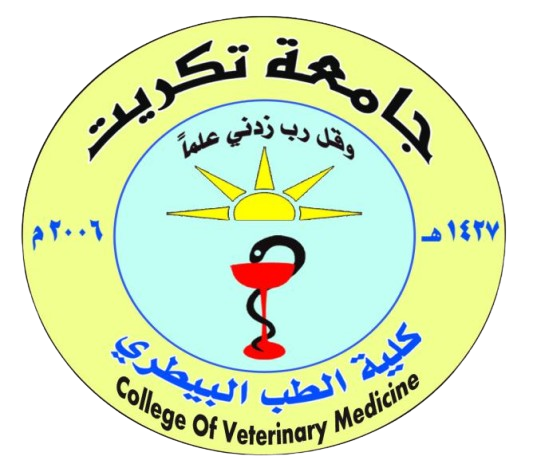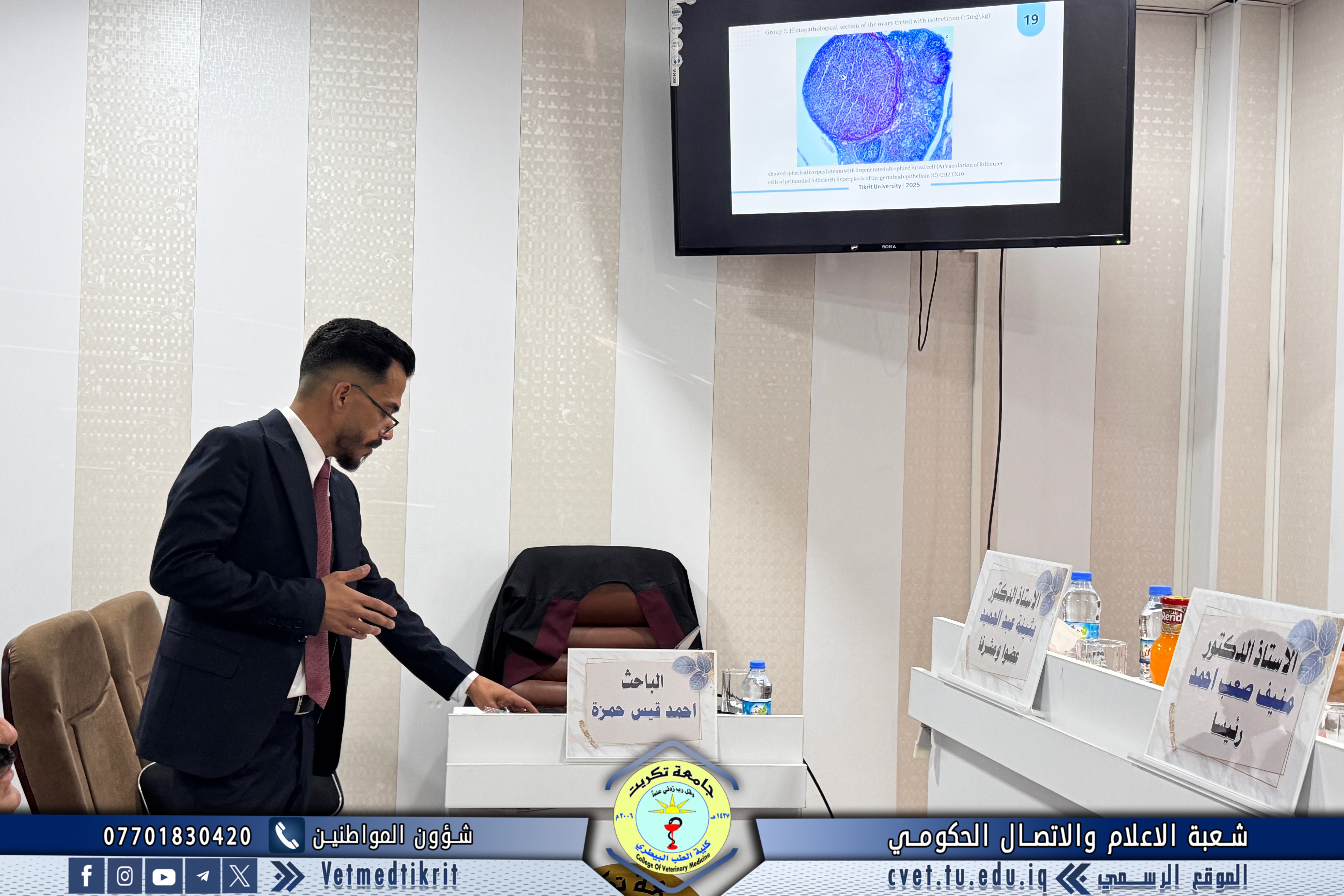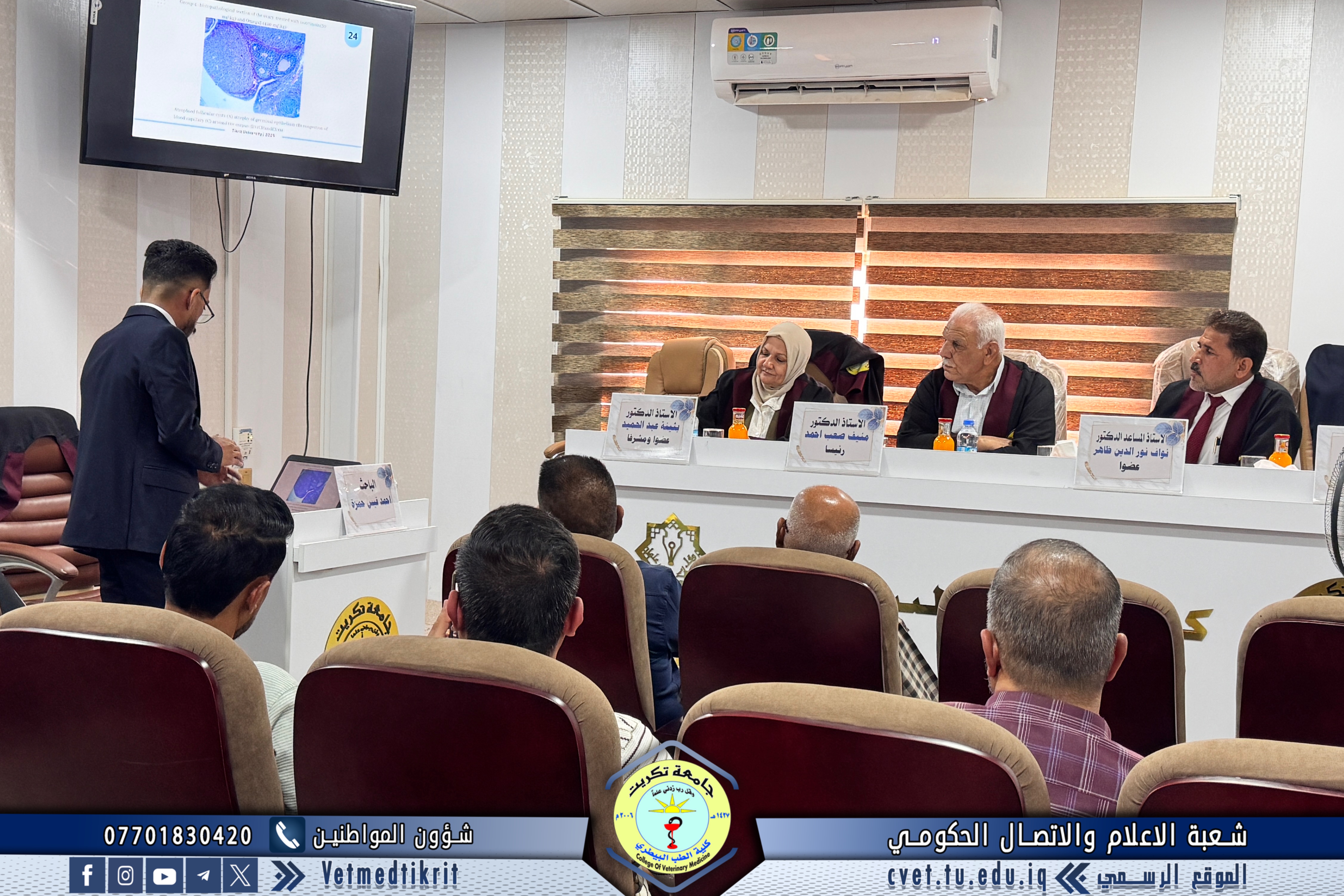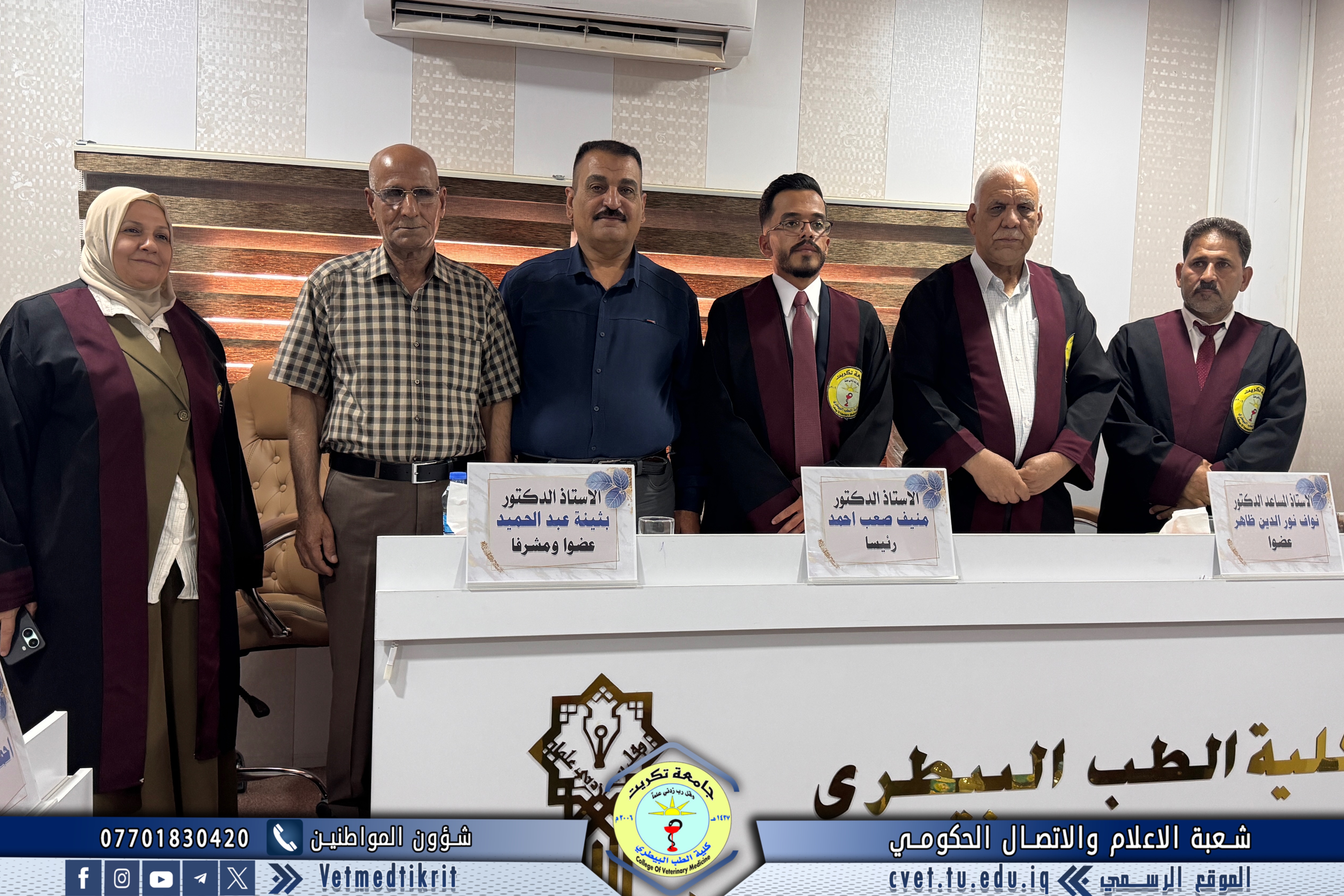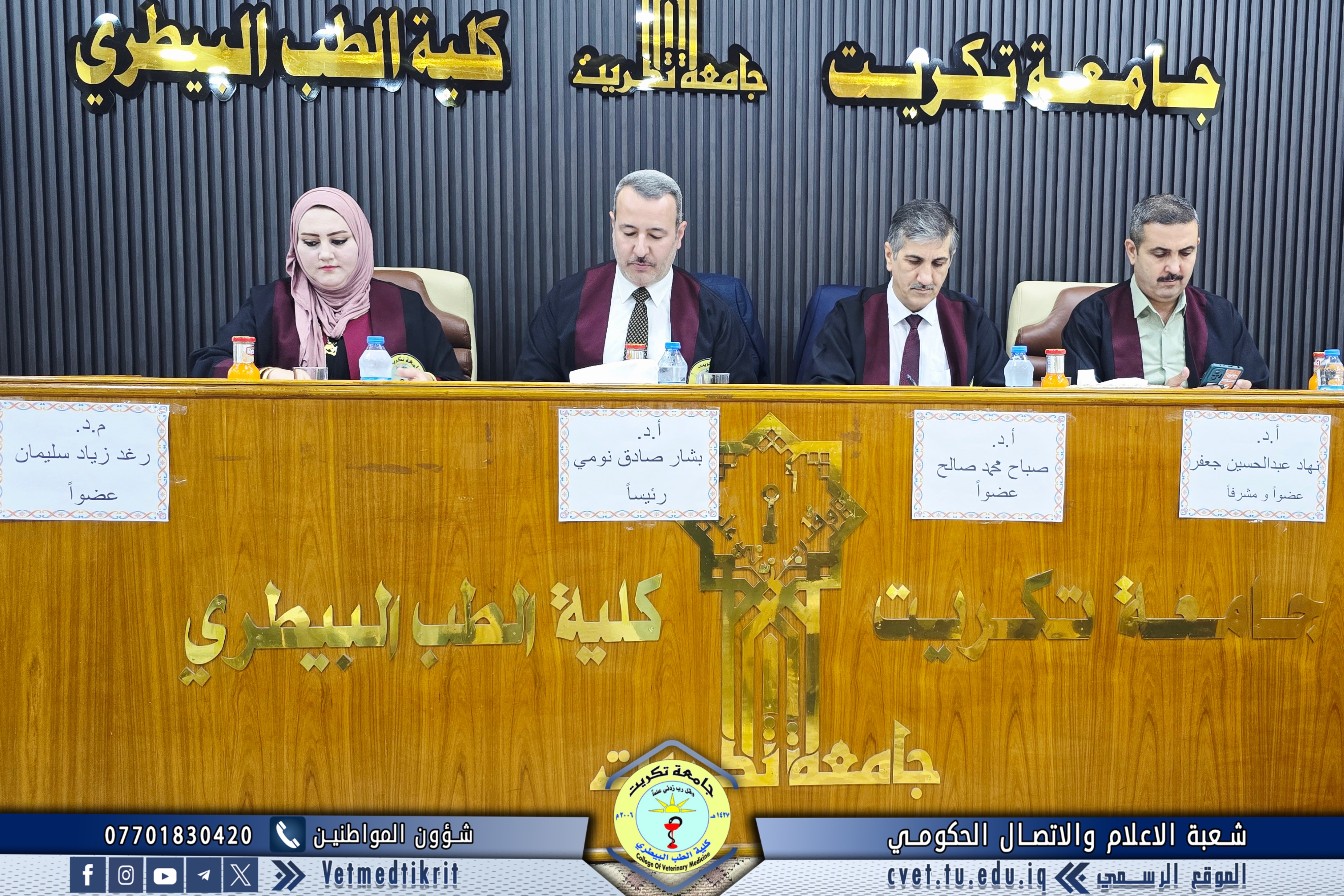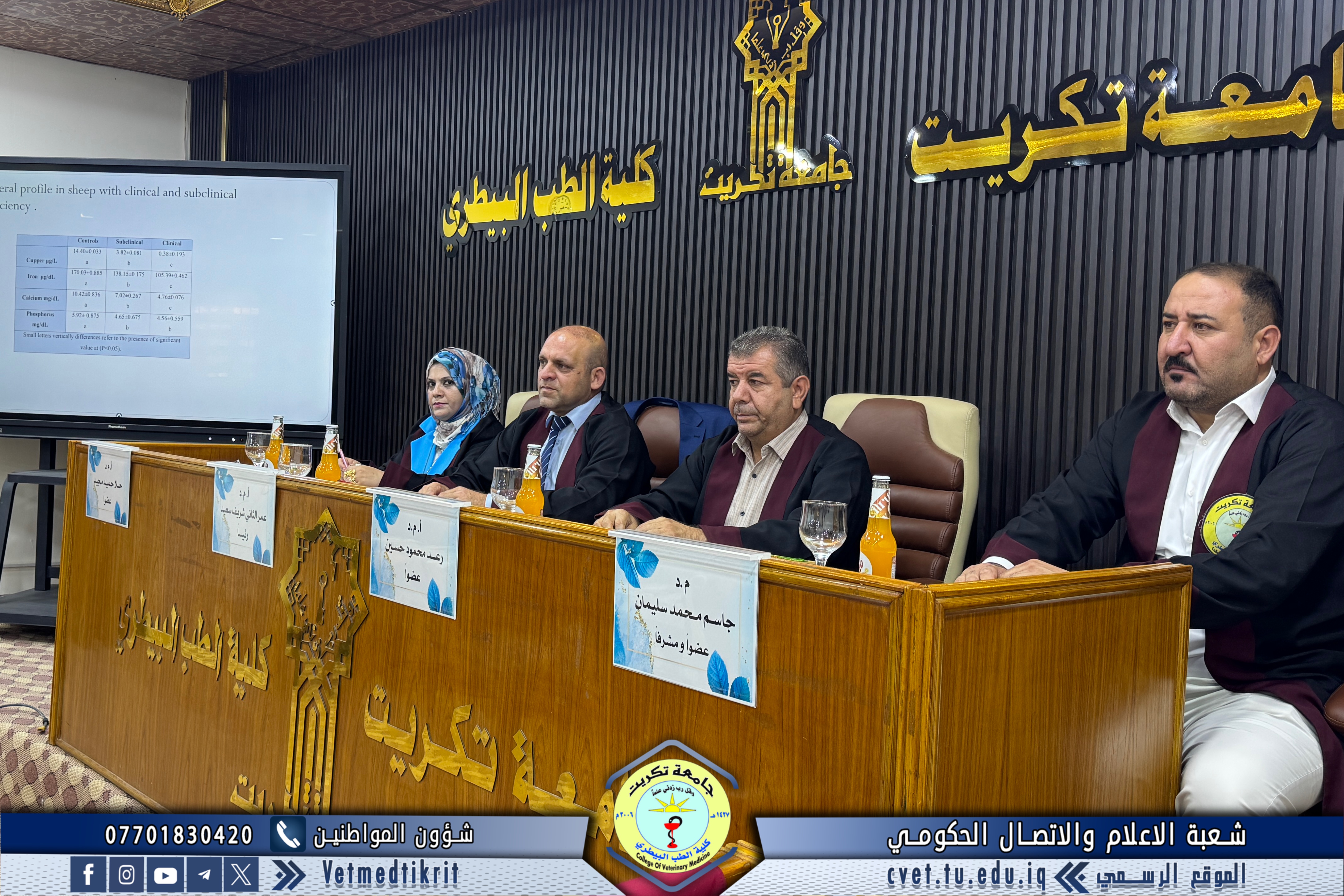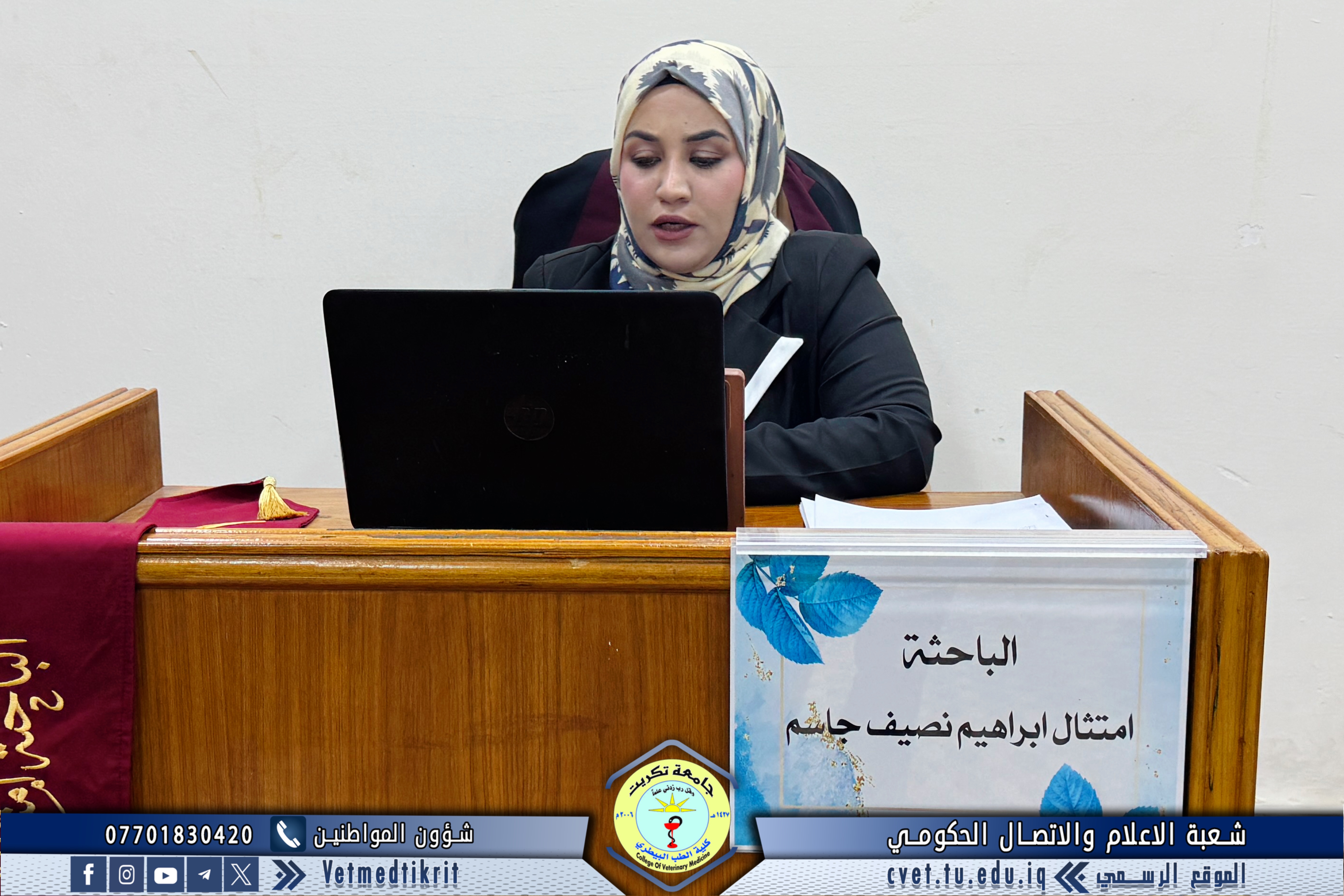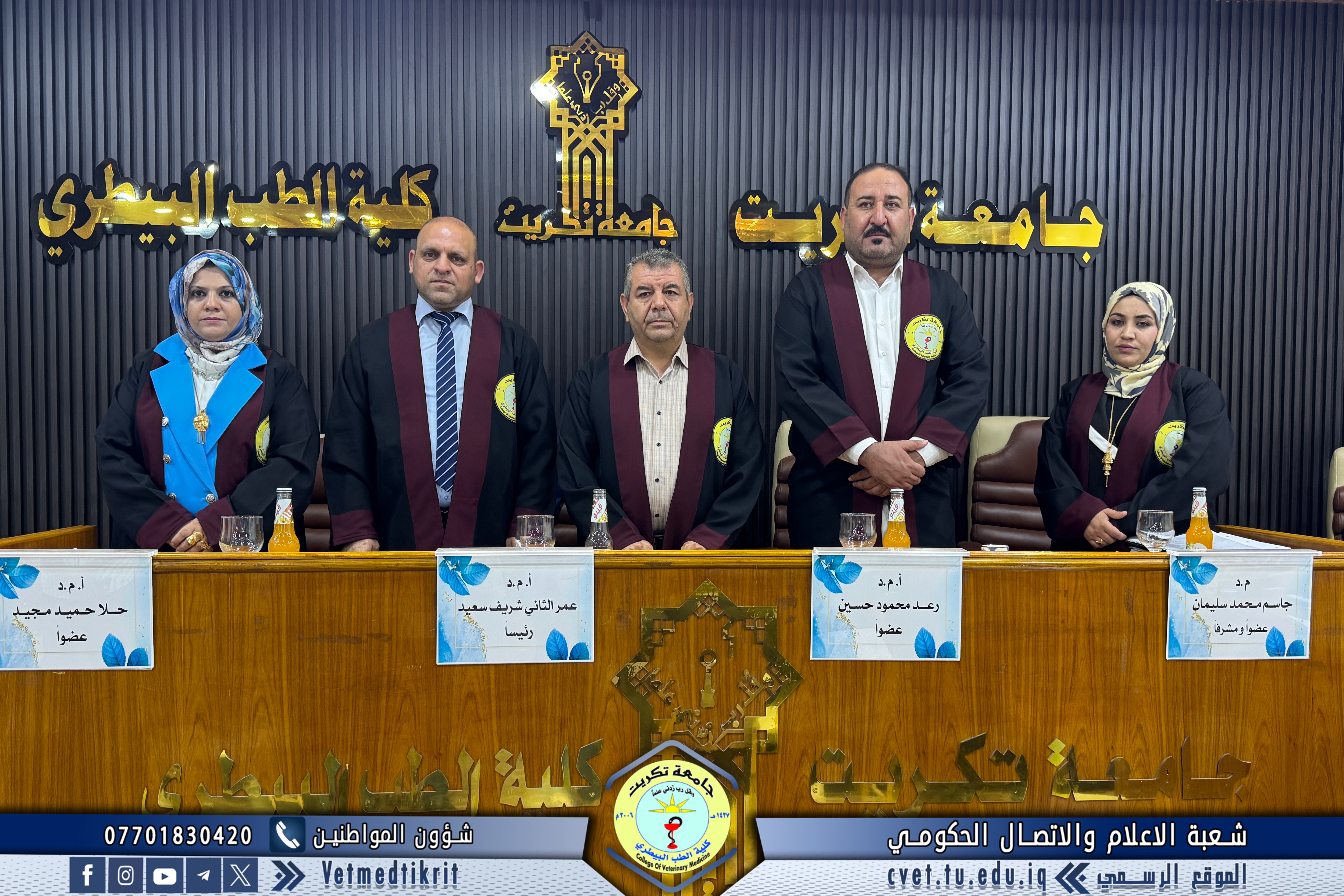With the grace of Allah, and in the presence of Prof. Dr. Bashar Sadiq Noami, Dean of the College of Veterinary Medicine at the University of Tikrit, the Master’s thesis entitled “Determining the Adverse Effects of Isotretinoin on the Female Reproductive System in Female Rats” was defended by the student Ahmed Qais Hamza, specializing in Veterinary Pharmacology.
The examining committee consisted of:
-
Prof. Dr. Muneef Saeb Ahmed / Animal Physiology / College of Veterinary Medicine – University of Tikrit / Chair
-
Prof. Dr. Hossam Al-Din Salem Mohammed / Pharmacology / College of Veterinary Medicine – University of Tikrit / Member
-
Asst. Prof. Dr. Nawaf Noor Al-Din Dhahir / Veterinary Obstetrics / College of Veterinary Medicine – University of Tikrit / Member
-
Prof. Dr. Buthaina Abdulhameed Abdullah / Pharmacology / College of Veterinary Medicine – University of Tikrit / Member and Supervisor
Thesis Abstract:
Oral isotretinoin, approved by the U.S. Food and Drug Administration (FDA) in 1982, marked a breakthrough in acne treatment. While it remains one of the most effective synthetic retinoids derived from Vitamin A, eliminating severe acne particularly resistant to conventional therapies, its precise mechanisms are not fully understood. Current evidence indicates multifaceted effects on skin health through nuclear and non-nuclear receptor activation.
However, isotretinoin is associated with severe adverse effects, particularly teratogenicity, ranking second only to thalidomide in causing birth defects, as well as increased risks of miscarriage. Its mechanism involves inducing adipocyte apoptosis, lowering lipid levels, and consequently enhancing therapeutic outcomes. Nevertheless, such apoptosis may negatively impact ovarian reserve and female fertility, as reflected in decreased Anti-Müllerian Hormone (AMH) levels.
This study aimed to clarify the reproductive toxicity of isotretinoin through histological, hormonal, and reproductive assessments in female rats, with particular emphasis on ovarian reserve.
Part I: Four groups of rats (five in each) were studied. The control group received no drug, while the experimental groups received isotretinoin at 15 mg/kg and 30 mg/kg. Blood samples were collected under anesthesia via cardiac puncture to assess LH, FSH, prolactin, and AMH. Ovaries were surgically excised, preserved in 10% formalin, and histologically examined. Results revealed significant differences:
-
LH and FSH levels were markedly lower in treated groups compared to controls (p < 0.01, p < 0.001).
-
Prolactin levels were elevated in treated groups.
-
AMH levels were significantly reduced, confirming the negative impact of isotretinoin on ovarian reserve.
Part II: Reproductive performance was assessed in four groups (five rats each) exposed to the same dosing regimen for one month. After treatment, males were introduced for mating. Pregnancy and delivery occurred only in the control group, while no pregnancies were observed in treated groups.
Conclusion: Isotretinoin administration, particularly at higher doses, poses significant risks to female reproductive efficiency, notably by reducing ovarian reserve—a critical determinant of fertility.
The defense, held in the seminar hall of the College of Veterinary Medicine, was attended by faculty members, staff, and a gathering of students.
